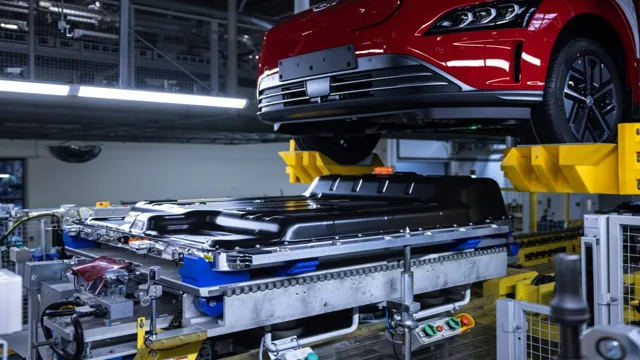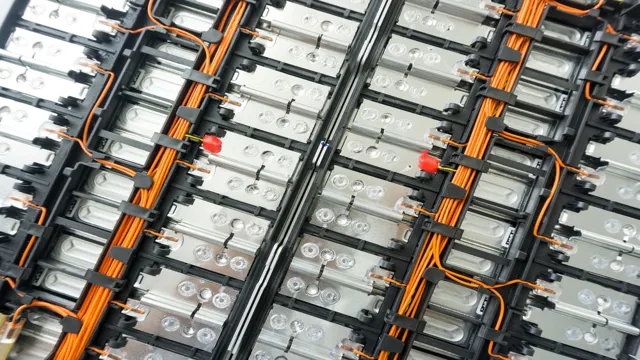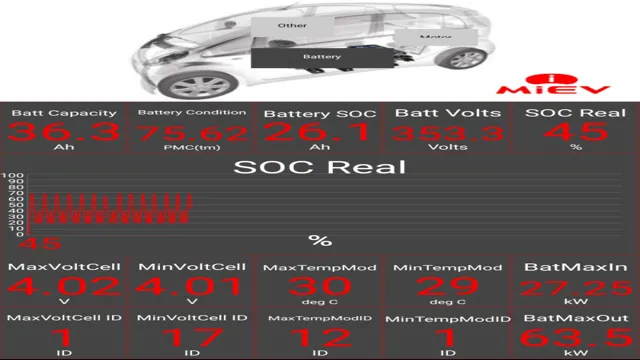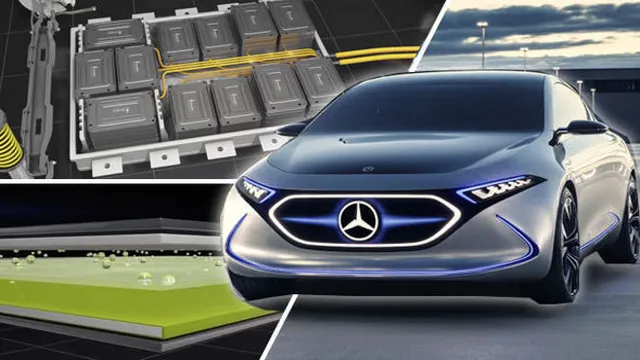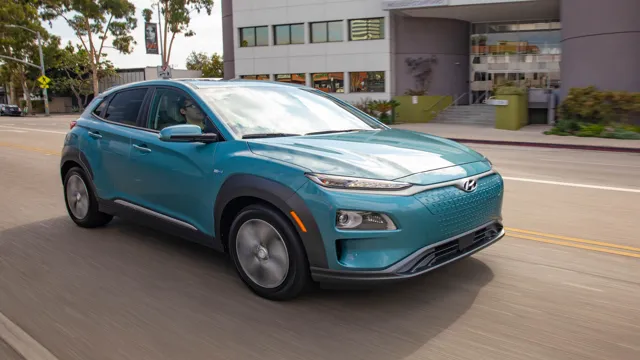Revving up the Future: Unveiling the Capacity of Electric Car Batteries
As the world shifts towards renewable energy, electric cars have been getting more attention than ever. With the ability to significantly reduce carbon emissions, electric cars seem like the way to go for a greener future. However, concerns over the battery capacity of electric cars still exist.
How far can they really go on one charge? Is it enough for daily commutes? Or will drivers be stranded on the side of the road? The truth is, the battery capacity of electric cars has come a long way in recent years, but it still has a ways to go. Let’s dive into the world of electric car battery capacity and see what the future holds.
Understanding Battery Capacity
When it comes to electric cars, one of the most important considerations is the capacity of the battery. Battery capacity refers to the amount of energy that can be stored and used by the vehicle. Essentially, the capacity determines how far the car can travel on a single charge.
The capacity of an electric car battery is measured in kilowatt-hours (kWh). Generally, the higher the capacity of the battery, the further the car can travel on a single charge. It’s important to note that battery capacity can be affected by factors such as temperature and driving style.
Additionally, the capacity of the battery will gradually decrease over time as the battery ages. Therefore, it’s important to carefully consider the capacity of the battery when choosing an electric car to ensure it meets your needs for daily driving.
What is kWh?
kWh, battery capacity kWh, or kilowatt-hour, is a standard unit of measurement for electrical energy consumption. It refers to the amount of electrical energy that is transferred or expended in one hour by a device or system that uses 1 kilowatt of power. Understanding kWh is vital when it comes to battery capacity because it determines the amount of energy a battery can store and the amount of power it can discharge over a certain period.
For example, if a battery has a capacity of 1 kWh, it can deliver 1 kilowatt of power for one hour, or 500 watts for two hours, or 250 watts for four hours and so on. Essentially, the capacity of a battery is measured in kWh because it allows us to identify how much energy a battery can hold and how much time it can power a device. So, when you’re shopping for batteries or thinking about installing solar panels or buying an electric car, understanding kWh is crucial to make informed decisions.
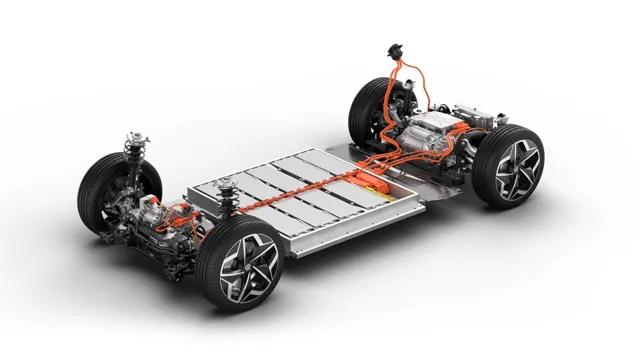
How is Battery Capacity Determined?
Battery capacity is the amount of energy a battery can store and deliver to power devices. The capacity of a battery is determined by measuring the total amount of charge stored in its cells. Typically, battery capacity is measured in ampere-hours (Ah) or milliampere-hours (mAh).
For example, a battery with a capacity of 2000mAh can deliver a current of 2000mA for one hour or 1000mA for two hours. The capacity of a battery is affected by various factors, including temperature, charging and discharging rates, and age. Higher temperatures can decrease battery capacity, while faster charging and discharging rates can shorten battery life.
It is important to understand battery capacity when selecting a battery for a device to ensure it can provide enough power for the intended use.
Current Average Battery Capacities
When it comes to the capacity of an electric car battery, there are a lot of factors at play. Currently, the average capacity for an electric car battery is around 60 kilowatt-hours (kWh), which is around enough to provide a range of 200-250 miles per charge. However, this can vary greatly depending on the make and model of the car, as some can have much larger or smaller battery capacities.
For example, the Tesla Model S has a much larger capacity at 100 kWh, allowing it to travel up to 402 miles on a single charge. Additionally, advancements in battery technology are constantly being made, so it’s likely that we will see even larger capacities in the future. Overall, the capacity of an electric car battery is an important factor to consider when deciding on which electric car to purchase, but it’s important to keep in mind that it is just one aspect of the overall vehicle performance.
Top 5 Electric Cars with the Largest Batteries
As the world transitions to cleaner and greener energy, the use of electric cars has become increasingly popular. One of the main challenges that electric car manufacturers have faced is creating a car with a large enough battery to provide a decent range. However, in recent years, numerous manufacturers have managed to overcome this challenge and come up with impressive cars with the largest batteries.
Currently, the average battery capacity for electric cars is around 60kWh. But, there are cars available that far exceed this average battery capacity. For instance, the Tesla Model S Long Range has a battery capacity of 100 kWh, which is the largest battery on the market today.
In addition, the Lucid Air comes with a 113 kWh battery, followed closely by the Tesla Model X and Tesla Model 3 Performance, both sporting a 100 kWh battery. Finally, the Rivian R1T Pickup Truck comes with a 105 kWh battery, showcasing that innovation in electric car technology continues to keep expanding in order to ensure a greener future.
Top 5 Electric Cars with the Smallest Batteries
Electric cars are becoming more popular as the world shifts towards clean energy and reducing carbon emissions. One important aspect of these vehicles is their battery capacity, which determines their range and overall performance. Currently, the average battery capacity for electric cars is around 60-70 kWh, with some high-end models having capacities of over 100 kWh.
However, there are also electric cars with much smaller batteries, which can still provide sufficient range for city driving or short commutes. In fact, some of the top electric cars with the smallest batteries are the Smart EQ Fortwo, the BMW i3, the Nissan Leaf, the Volkswagen e-Up, and the Renault Twizy, with battery capacities ranging from 16 kWh to 22 kWh.
While these cars may not be suitable for long road trips, they offer an affordable and eco-friendly option for daily use.
How to Maximize and Optimize Battery Capacity
The capacity of an electric car battery can be maximized and optimized by utilizing a few simple tricks. Firstly, keeping your battery well-maintained by avoiding extreme temperatures and charging it regularly will significantly improve its lifespan. Secondly, avoiding unnecessary acceleration and braking can also help conserve energy and improve your battery range.
Additionally, utilizing regenerative braking systems and eco-driving modes can help optimize your battery capacity. Another helpful tip is to utilize public charging stations strategically, such as during off-peak hours or when your battery is not fully depleted, which can reduce strain on your battery and extend its lifespan. By taking these measures, you can maximize your electric car’s battery capacity and get the most out of your eco-friendly vehicle.
Tips for Increasing Battery Life
One of the biggest concerns for smartphone users is the battery life of their device. With so many apps running in the background and screen time increasing, it’s essential to know how to maximize and optimize battery capacity. First, it’s crucial to adjust the display settings like brightness, auto-lock, and auto-brightness.
Reducing vibration and sound intensity and setting a dark wallpaper or theme also help conserve battery power. Secondly, disabling unused apps and disabling GPS, Bluetooth, and WiFi helps extend battery life. Third, updating the software and deleting cached data can improve battery performance.
Lastly, using power-saving modes, external power banks, and charging phones intelligently prevent overcharging and overheating, which can harm the battery life. Overall, using these tips and tricks will help users keep their battery healthy and efficient.
Maximizing Range with Efficient Driving Habits
To maximize and optimize battery capacity, efficient driving habits are essential. One of the simplest ways to extend your electric vehicle’s range is by driving at a consistent speed and avoiding sudden accelerations and hard braking. This will help to conserve energy and reduce the strain on your car’s battery.
Additionally, using regenerative braking can help to recharge your battery while driving. Plan your routes ahead of time to avoid high traffic areas and take advantage of charging stations along the way. It’s also important to keep your car’s tires properly inflated, as under-inflated tires can decrease range by up to 10%.
By following these tips and making small adjustments to your driving habits, you can significantly increase your electric vehicle’s range and enjoy a more efficient, eco-friendly ride.
The Future of Battery Technology
The capacity of electric car battery is a crucial factor in the widespread adoption of electric vehicles. While current battery technology has come a long way in terms of capacity and efficiency, there is still a lot of room for improvement. The future of battery technology for electric cars is looking promising.
Researchers are exploring new materials and techniques to increase the capacity of batteries while reducing their weight and size. There are several promising technologies in development, including solid-state batteries and lithium-sulfur batteries. Solid-state batteries have the potential to double the energy density of current lithium-ion batteries while lithium-sulfur batteries have the potential to triple it.
These breakthroughs will enable electric vehicles to travel longer distances on a single charge, making them a more practical and viable option for drivers. As the demand for electric vehicles continues to grow, we can expect to see more advancements in battery technology that will make electric cars more accessible and convenient for everyone.
Advancements in Battery Technology
As our dependence on technology grows, so too does our need for long-lasting, reliable batteries. The good news is that advancements in battery technology are constantly being made, and the future looks promising. One major trend is the development of solid-state batteries, which use solid electrolytes instead of liquid ones.
Solid-state batteries have the potential to provide increased energy density, faster charging times, and improved safety compared to traditional lithium-ion batteries. Another exciting development is the use of artificial intelligence to optimize battery performance and extend lifespans. By leveraging AI, batteries can be designed to adapt to individual usage patterns and adjust their output accordingly.
These advancements will not only benefit consumer electronics but also have significant implications for industries like transportation and renewable energy storage. The future of battery technology is bright, and we can expect to see even more breakthroughs in the coming years.
What to Expect for Future Electric Car Battery Capacities
The future of electric vehicle battery technology looks promising, with new innovations in the pipeline that could significantly increase battery capacities. Battery manufacturers are pursuing various strategies, such as using different materials in the battery cells, improving existing chemistries, and even exploring entirely new types of batteries. Experts predict that with these advancements, electric cars could soon achieve ranges of up to 500 miles or more on a single charge.
With a more extended driving range, electric cars could become much more practical for long road trips, making them more competitive with gas-powered vehicles. With battery technology advancements, electric vehicles will help reduce carbon emissions and offer a cleaner mobility future.
Conclusion
The capacity of an electric car battery is like an athlete’s endurance – it determines how far they can go before running out of steam. And just like athletes, electric cars with bigger battery capacities can go the distance and surpass their competitors with ease. So if you want to make sure your electric vehicle can handle long drives and leave gas-guzzlers in the dust, a larger battery capacity is definitely the way to go!”
FAQs
What is the typical capacity of an electric car battery?
The typical capacity of an electric car battery ranges from 20 kWh to 100 kWh, depending on the model and manufacturer.
How long does it take to fully charge an electric car battery?
The time it takes to fully charge an electric car battery depends on the size of the battery and the charging station used. Level 1 charging can take up to 24 hours, level 2 charging can take 4-8 hours, and DC fast charging can take 30-45 minutes.
What factors affect the capacity of an electric car battery?
The capacity of an electric car battery can be affected by factors such as temperature, driving habits, and the age of the battery.
How far can an electric car go on a single charge?
The distance an electric car can go on a single charge depends on the capacity of the battery and the efficiency of the car. Typically, electric cars can travel between 100-300 miles on a single charge.
